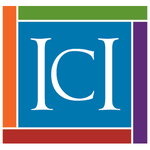Tomodachi Story Jam Participants Showcase Disability Advocacy Story Videos at Final Event
Congratulations to the 10 participants of the TOMODACHI Story Jam for Youth with Disabilities for successfully completing the program!
TOMODACHI Story Jam for Youth with Disabilities is a nine-week (September–November) digital storytelling and youth leadership program that brought together 10 Japanese and American college students and young professionals with disabilities to collectively explore their experiences of breaking down barriers.
The program is part of the TOMODACHI Initiative, a public-private partnership between the US-Japan Council and the US Embassy Tokyo. TOMODACHI Story Jam for Youth with Disabilities is supported by Northrop Grumman Corporation (NGC) and the Japanese American Citizens League (JACL), Sacramento Chapter, and implemented by the ICI in partnership with StoryCenter.
We selected youth for the program based on their leadership experience and engaging story proposals. Youth “storytellers” participated in weekly Story Jam sessions and discussed moments when they felt deeply challenged by access barriers, how they navigated these challenges, what they learned about themselves, and how their insights and experiences can translate into positive change for themselves and their community.
Story Jam sessions also featured guest speakers — disability advocates, including representatives from The Voice, NGC’s Disability Employee Resource Group, and the JACL’s Alaska Chapter; disabled journalists, storytellers, and social media influencers; and disability and media scholars and practitioners. Guest speakers discussed access barriers and the role of advocacy in their countries, and they encouraged and emboldened youth to tell their stories and bring about change.
The program culminated in the screening of the youth’s five-minute advocacy story videos at a final event on November 11. At the event, youth also reflected on their program experience and shared their thoughts on how they will use their new leadership, storytelling, and advocacy skills in the future.
Screenshot of a Zoom window with four rows. Each row features three webinar attendees’ windows (text to be embedded in the image
When asked about their favorite part of Story Jam, Taylor Carley said: “My experience was awesome! I made friends, and I learned about all your stories! My advocacy was the topic of my story, but how do I tell it? I wanted to tell it in third person, but then I saw other Story Jam participants and thought, ‘I get it!’ I used first person to talk about how I used my voice [to advocate] for the first time, and I think it’s great. I am thankful for TOMODACHI — I love everything about Story Jam!”
Kiina Wakiyama, another storyteller, said: “The reason why I applied for Story Jam was because I don’t want to give up on relationships with people because of my disability. The relationships are not just mine, but ‘ours.’ The most important realization I’ve gained through this program is that in order to accomplish self-advocacy, I need a good advocate. I can’t make it only by myself. Thank you very much.”
Reflecting on the program experience, Dan Ito said: “I am grateful to know this program. I learned a lot about advocacy. I was expecting to learn how to speak more efficiently in my storytelling, but this program changed my mind about what advocacy should sound or look like. Really, advocacy is being yourself and telling your story. It’s a huge part of advocacy. That’s a big thing I learned. I am so grateful for everyone in this program, and I am happy that I met a lot of wonderful people.”
Deidra Denson, another Story Jam storyteller, shared: “I have told my story before, but never in a compiled theme. I learned a lot from here to have the courage. I think everyone’s videos has motivated me to speak more in the future. I have applied for Story Jam because I felt the format was different. I am used to being in an academic setting, but this program was built on individuals! It was thrilling. Thank you, all of you!”
Junko Tsuda, executive director of the US-Japan Council (Japan), congratulated the storytellers on their powerful videos and disability advocacy messages, as did Steven Rose, director for business strategy for NGC Japan. Mr. Rose remarked: “Today has been very educational and inspirational. The stories were so vibrant and real. We are proud to sponsor this program and events like these. We want to support young people like you. All of you have overcome society’s obstacles. I have a sincere wish that you will change your communities. For both Japan and America, we have talent and courage amongst us, and we can build something together.”
In her final remarks, Miyoko Sawamura noted: “Since its founding in 1929, the Sacramento Japanese American Citizens League chapter continues to support civil rights and cultural heritage of Japanese Americans and of all citizens as well. We serve the social and political needs of the Nikkei, the Japanese diaspora, in our area. With this mission, we are proud to co-sponsor TOMODACHI Story Jam that supports brilliant young leaders like you all. Your storytelling today was so powerful and touching. Watching your videos and listening to your stories — I feel inspired and motivated to continue to realize our chapter’s mission, and to make sure that persons with disabilities are included in all that we do. Thank you, and best wishes to everyone.”
In concluding the event, Heike Boeltzig-Brown, TOMODACHI Story Jam program director, said, “Clearly, storytelling has an important place in all of our lives, and we are proud of our storytellers for taking this journey with us.”
